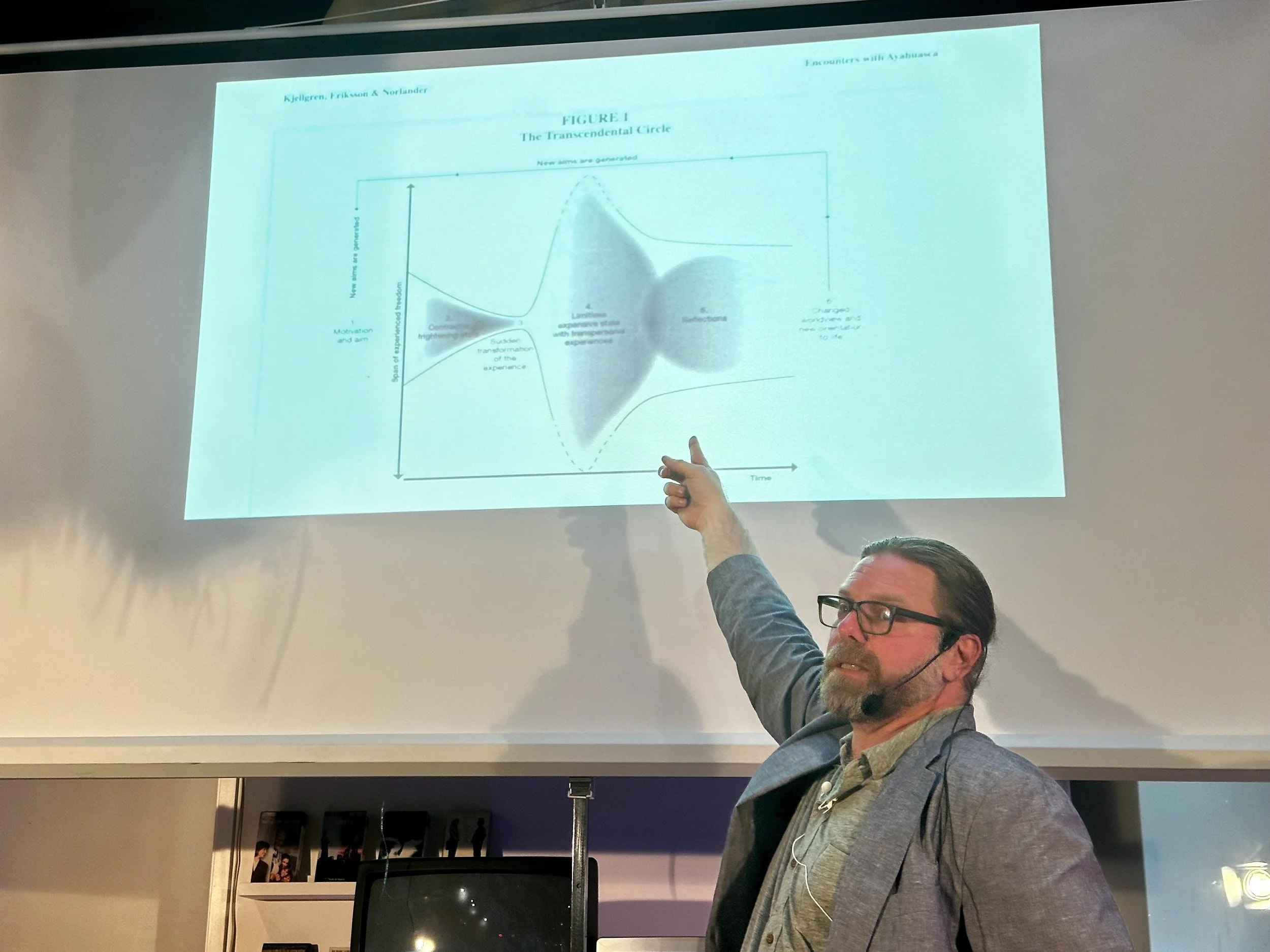Larry Norris PhD presents Effing the Ineffable
The District House hosted an enlightening presentation by Larry Norris, PhD, co-founder of Entheogenic Research Integration and Education (ERIE) and Decriminalize Nature. The event shed light on the crucial process of psychedelic integration and its impact on personal transformation.
A big thank you to District216 host Cole Lupoli for the thoughtful interview questions, and engaging introduction.
Dr. Norris delved into various topics, from the scientific aspects of integration to practical techniques and considerations. Here are highlights of the importance of integration in the realm of psychedelic experiences.
Quantitative and Qualitative Science
Dr. Norris emphasized the need for a comprehensive approach to studying entheogenic experiences. He highlighted the importance of both quantitative and qualitative research, urging the scientific community to embrace a "radical empiricism" meaning drawing insights from the direct noetic experience, that embraces alternate states of consciousness. By expanding the conversation beyond mainstream scientific and religious paradigms through radical empiricism, we can gain a deeper understanding of these profound experiences.
Theories and Key Terms in Integration
Dr. Norris introduced theories and key terms related to integration. He described two types of integration. The first type of integration encompasses the entire practice surrounding entheogenic experiences, starting from preparation and extending until transformation occurs. The second type of integration focuses more specifically on meaning-making process, distinct from implementation, which helps individuals apply insights gained during the experience to their daily lives. This distinction between integration and implementation is crucial for a holistic approach to personal growth.
Transformative to Transformation
Drawing from the work of psychologist Carl Jung, Dr. Norris explored archetypes of transformation. These archetypes symbolize the various types of transformative experiences individuals may undergo. By understanding and recognizing these archetypes, individuals can better navigate their personal journeys of growth and self-discovery.
Practical Steps and Techniques
Dr. Norris shared practical steps and techniques for integration. He also discussed the complexities of change, including the type of experience, an individual's worldview, personal context, free choice, and the inoculation effect. By considering these factors, individuals can understand potential challenges of the process, integrate their experiences more effectively, and derive long-lasting benefits from their psychedelic journeys.
Considerations of Integration
Dr. Norris emphasized the significance of community support and accountability in integration. He introduced ERIE's Peer Integration Circles, which provide a structured and safe space for individuals to share their experiences and receive constructive feedback. Community reflection and open discourse help individuals come out of the "psychedelic closet" and foster a sense of connection and understanding.
Larry Norris' presentation on psychedelic integration provided valuable insights into the transformative power of entheogenic experiences. By embracing a comprehensive approach that combines quantitative and qualitative research, individuals can navigate their personal journeys more effectively. Integration goes beyond the psychedelic experience itself; and including implementation encompasses the application of insights gained during the journey to daily life. By considering the complexities of change, exploring archetypes of transformation, and seeking community support, individuals can unlock the full potential of their entheogenic experiences. As we move forward, it is essential to continue the conversation around integration and its role in personal and spiritual growth and well-being.















